MEDIUM
Earn 100
The most unlikely representation of resonance structures of -nitrophenoxide ion is
(a)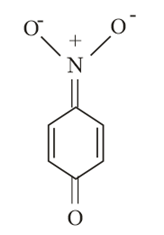

(b)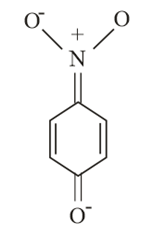

(c)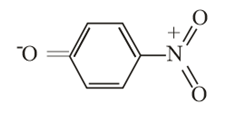

(d)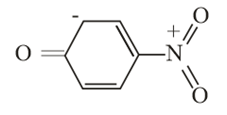

50% studentsanswered this correctly
Important Questions on Basic Principles of Organic Chemistry
EASY
The most acidic proton and the strongest nucleophilic nitrogen in the following compound

respectively, are
EASY
Which of the following is correct with respect to effect of the substituent? (alkyl group)
MEDIUM
Which of the following represents the hyperconjugation effect?
EASY
Which of the following alkyl groups shows least positive inductive effect?
EASY
Identify the functional group that has electron donating inductive effect.
MEDIUM
The higher stabilities of tert-butyl cation over isopropyl cation and trans-- butene over propene, respectively, are due to orbital interactions involving
EASY
A tertiary butyl carbocation is more stable than a secondary butyl carbocation because of which of the following?
MEDIUM
Which one among the following resonating structures is not correct?
MEDIUM
In which of the following molecules, all atoms are coplanar?
MEDIUM
Which of the following molecules is least resonance stabilized?
EASY
Which of the following compound is the most basic?
EASY
Consider the following compounds

Hyperconjugation occurs in:
MEDIUM
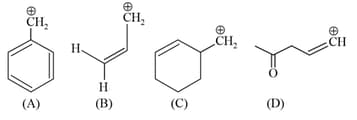
Among the given species the Resonance stabilised carbocations are:
EASY
The chlorine atom of the following compound

that reacts most readily with to give a precipitate is
MEDIUM
Given below are two statements :
Statement I : Hyperconjugation is a permanent effect.
Statement II : Hyperconjugation in ethyl cation involves the overlapping of bond with empty orbital of other carbon.
Choose the correct option:
EASY
Which of the following is not explained by hyperconjugation?
EASY
The order of stability of the following alkenes with the first being the most stable and last being the least stable is
(i)
(ii)
(iii)
(iv)
EASY
Resonance effect is not observed in
EASY
In pyrrole, the electron density is maximum on
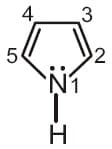
MEDIUM
Which of the following carbocations is expected to be the most stable?

